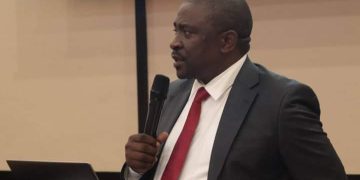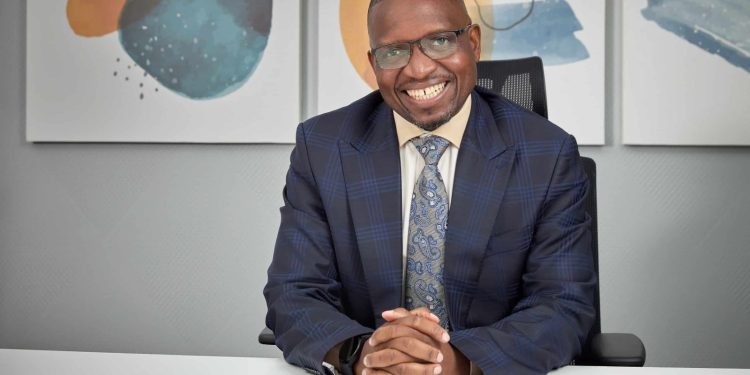Maseru
Basotho ex-mine workers are expressing their frustration over delays and complications in receiving compensation from the Tshiamiso Trust. The Trust, based in the Republic of South Africa, was established to disburse funds to mineworkers who contracted silicosis and tuberculosis (TB) while working in South Africa’s gold mining sector.
However, the Trust is facing heavy criticism for its poor communication methods, which many claimants believe are obstructing the payment process.
Since the compensation process began in 2019, thousands of Basotho claimants have accused Tshiamiso of either delaying or failing to fulfil its obligations. With the process set to end in 2031, workers are worried that time is fleeting and that they might not receive the compensations they are entitled to.
The Trust was created following a class-action settlement agreement between claimant attorneys and several mining companies, including African Rainbow Minerals, Anglo American South Africa, AngloGold Ashanti, Harmony Gold, Sibanye-Stillwater, and Gold Fields.
To qualify for compensation, mineworkers must meet specific criteria. Current and former mineworkers across Southern Africa with permanent impairment due to silicosis or work-related TB, or their dependents if the workers are deceased, can apply. A mineworker must have performed risk work at one of the qualifying gold mines between March 12, 1965, and December 10, 2019.
Compensation amounts vary based on the severity of the disease. For silicosis, the payments are as follows: Class One pays up to M78 732, Class Two up to M168 712, and Class Three up to M281 187.
A special award for claimants in Silicosis Class Three with additional medical conditions pays up to M562 375. Dependent silicosis in Category A pays up to M112 475, while Category B pays up to M78 732.
For TB, compensation is categorized into three degrees, First Degree pays up to M56 237, Second Degree up to M112 475, and Historical Tuberculosis Claimants (those with TB but without a medical report) can receive up to M11 247.
During a recent parliamentary sitting of the Social Cluster Portfolio Committee, Tshiamiso Trust CEO Munyadziwa Kwinda reported that 138 000 workers have lodged claims, with 52 000 of them being Basotho, representing 38 percent of the overall claimants.
Of the roughly 18 000 claimants who have been compensated, 7 918 are Basotho, accounting for 43 percent of all settlements regionally.
“The amount of money paid to Basotho to date is M700 million. When we look at the total amount paid to all claimants in the region, which is around M1.6 billion, 43 percent of that was paid to Basotho,” Kwinda stated.
Kwinda also highlighted a major challenge in disbursing funds that many death certificates across the Southern African Development Community (SADC) region do not specify TB or silicosis as the cause of death, which is a requirement for the Trust. Additionally, many claimants become unreachable due to outdated contact information, significantly delaying the process.
“To address these issues, we are extending our services. For example, in Lesotho, we have eight lodgement sites. We had opened another center in Thaba-Tseka to make our services more accessible, but had to close it due to low uptake. We are also operating mobile units for medical examinations and are now looking at having fixed service providers,” Kwinda said.
Tshiamiso’s Chief Operating Officer, Tina da Cruz, explained that the Trust’s mobilization strategies are based on Section 11 of the deed. Initially, they used a track-and-trace strategy but have since moved to a pull strategy, encouraging claimants to contact them directly.
“We communicate regularly and have spent over M30 million on communication across the region, informing people about the Trust and the lodgement process. In 2021, we conducted a six-week communication campaign. We also conducted outreach activities in Lesotho, covering eight districts,” Da Cruz explained.
Booi Mohapi, representing Justice For Miners (JFM), criticized Tshiamiso for overlooking communication barriers, including language differences and accessibility issues. Although Sesotho is common in both Lesotho and South Africa, it is written differently, creating challenges when updates are sent via mobile messages.
Mohapi also noted that many claimants do not have smartphones, making it difficult to access information online.
Basotho Action Party (BNP) leader Machesetsa Mofofmobe echoed these concerns, emphasizing that Lesotho’s mountainous terrain makes it difficult to reach some areas, impacting both physical accessibility and telecommunication.
He suggested utilizing local government structures and community leaders to improve communication and support for claimants.
“Not all radio stations can reach the entire country. Even if you have a cell phone, calling South Africa is expensive. We need to find cost-effective ways to search for and identify claimants through local government and community networks,” Mofofomobe advised.







